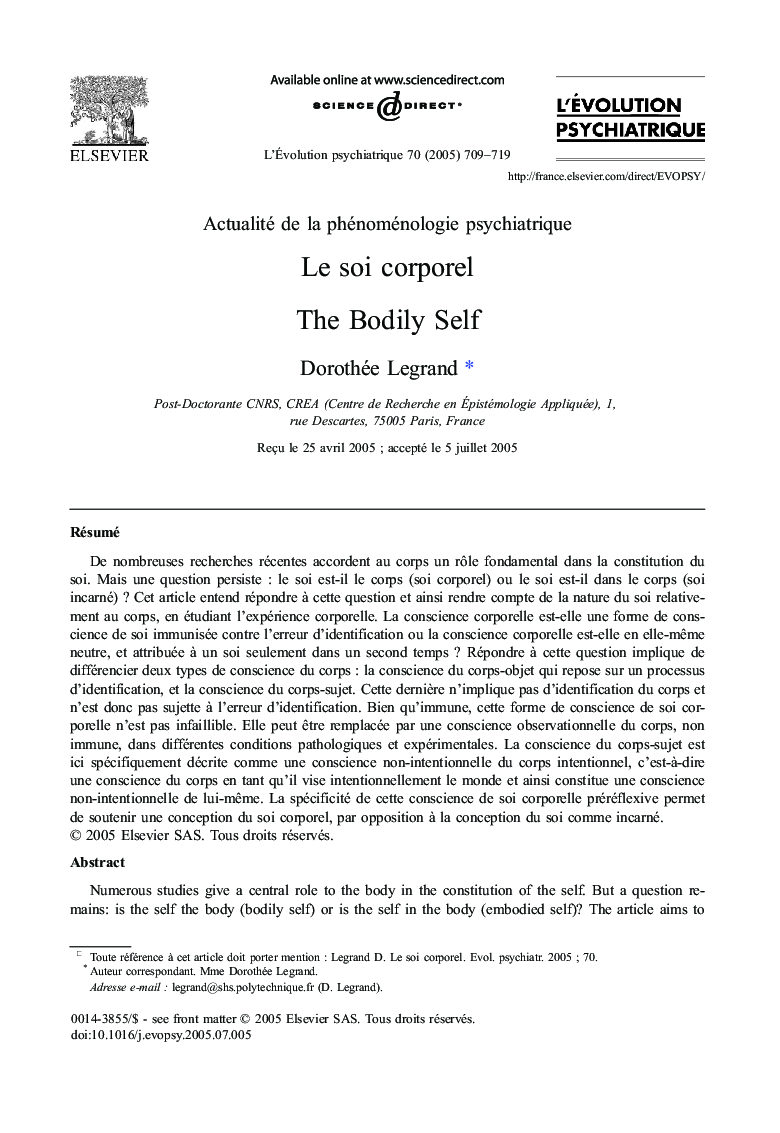| Article ID | Journal | Published Year | Pages | File Type |
|---|---|---|---|---|
| 9720749 | L'Évolution Psychiatrique | 2005 | 11 Pages |
Abstract
Numerous studies give a central role to the body in the constitution of the self. But a question remains: is the self the body (bodily self) or is the self in the body (embodied self)? The article aims to answer this question and thereby accounts for the nature of the self in relation to the body, by investigating bodily experience. Is bodily consciousness a form of self-consciousness immune to errors through misidentification or is bodily consciousness neutral in itself, and attributed to the self only in a second step? Answering this question implies to differentiate two types of bodily consciousness: consciousness of the body-object, relying on a process of identification, and consciousness of the body-subject. The latter does not imply any process of identification of the body and is thus immune to errors through misidentification. Even if immune, this form of bodily self-consciousness is not infallible. It can be replaced by an observational consciousness of the body, non immune, in different pathological and experimental conditions. Consciousness of the body-subject is specifically described as a non-intentional consciousness of the intentional body, that is, a consciousness of the body as it aims intentionally at the world and thereby a non-intentional consciousness of itself. The specificity of this pre-reflexive bodily self-consciousness gives supports to the conception of the self as bodily, by opposition with the conception of the self as embodied.
Related Topics
Health Sciences
Medicine and Dentistry
Psychiatry and Mental Health
Authors
Dorothée Legrand,
